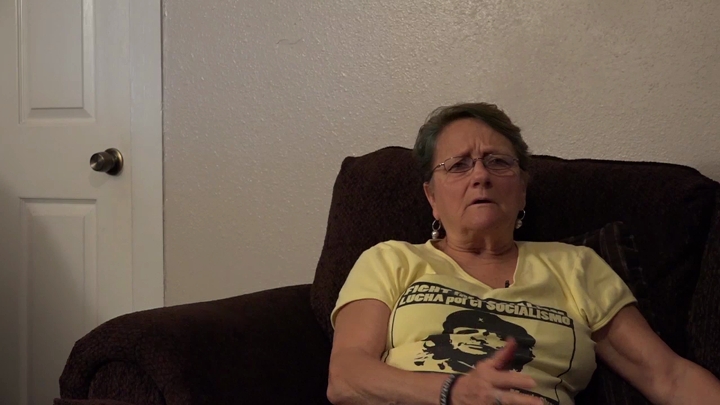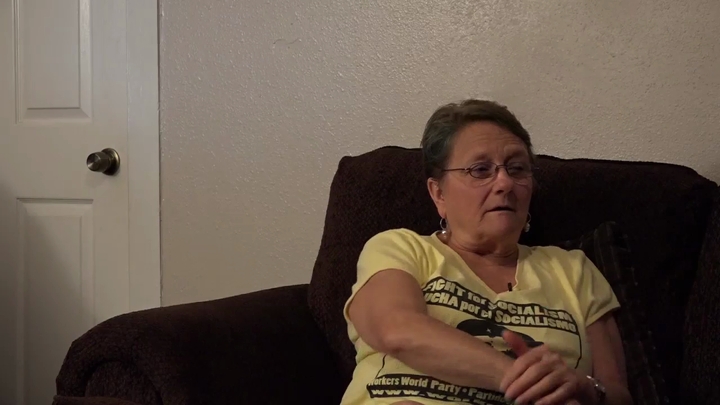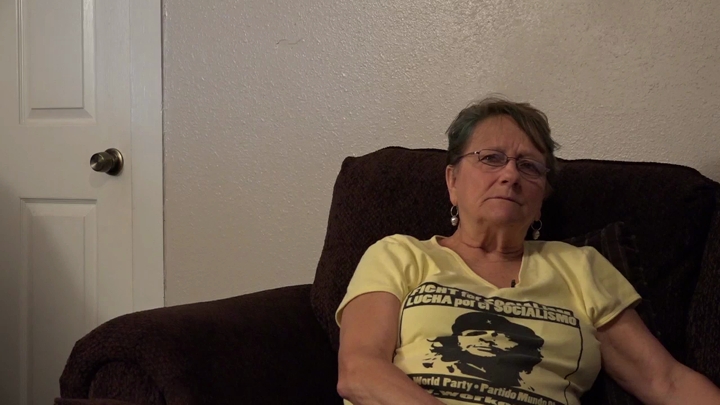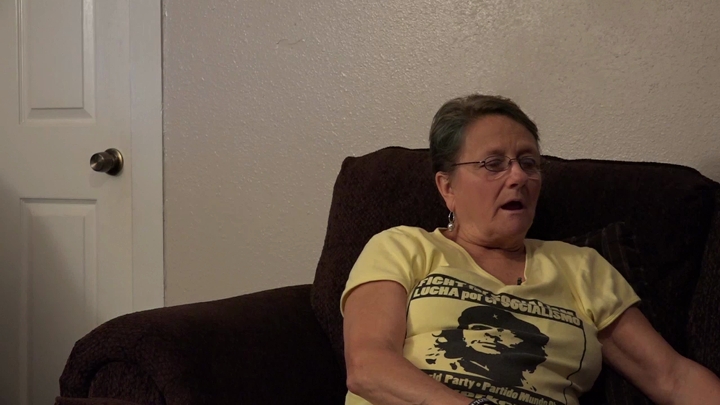Crear / Biggest Party Accomplishments Locally and Women Involvement in the Party
sign up or sign in to add/edit transcript
Interviewer: What would you say are some of the biggest accomplishments the party accomplished locally? Crear: Well, I tell you what, you know Metrolift that they have for seniors? We forced the bus companies to do a thing for seniors, you know. Just like with the programs. You wouldn’t have breakfast in schools right now if it wasn’t for the party. Sickle cell—you know, it wasn’t just local because everything we did here was done nationally. (inaudible) Wheatley, I need to go over there and find out the principal’s name, but he loved us to death. He used to let us come to campus, Wheatley High School in the Fifth Ward. He used to let us come on campus and sell papers and speak to the classes. I remember one of the teachers one time, she said, “I want to ask you a question. Who was it that started the Sickle Cell Anemia test?” I said, “It was the Black Panther Party.” She said, “The reason I’m asking you that is that my sister has Sickle Cell and she would have never known she had it if it wasn’t for the Black Panther Party.” It’s a lot of big things and a lot of little things, but I think the main thing is just that people realize that you can stand up and be a man or a woman. It’s like there’s a sister over in Fourth Ward named, oh I know her last name is Howson, but she tells people now she’s (inaudible) of the breakfast program. She’s a politician. She’s tells people to this day how much she admired the sisters in the Panther Party because they were some black woman that they just stood up. They were tough. They were intelligent. We effected people in a lot of ways, small and big. Interviewer: Other than Ruby Morgan, who were the women that were involved? Crear: Yeah, Ruby Morgan. You had Loretta Freeman. I mentioned Charles Freeman earlier. Loretta was Charles’ sister. Veronica Campbell. Sandra. Caroline Martin. It was quite a few sisters. I mean, nationwide, just like in Oakland, our leadership were female. In fact, Elaine Brown became the chairperson of the Black Panther Party after Bobby Seale left. So, women were very involved. Elaine was here speaking recently. First thing she said when she saw me—and I hadn’t seen Elaine since probably 1978. She said, “Bunchie, we went to hell and back together.” I said, “You’re right.” She was saying one of the misconceptions, because like in Stanley Nelson’s film they were talking about at one point there were more sisters that brothers. Elaine said she never thought that. She asked me I said no I didn’t think that. It’s a good thing to say but there’s a lot of sisters in the party. Many of them, it’s just like women period. Women are better with particulars, so a lot of them handled the programs and setting up things. Person that was head of finance nationally was always a female. It was females on the central committee. Females played a large role. Like I said, I tell you an instance, I mentioned Loretta and Veronica. One time we were at the office and this was in Fourth Ward. These brothers came running in, he said, “You brothers better hurry up and get downtown. Two of your sisters just whooped up on this policeman.” We get down there. By the time we got there they had took them to jail but this policeman was harassing them, and they whooped the shit out of him because they didn’t take no mess just like we did take any. So yeah, women played a large role in the party. Interviewer: Did you ever witness any discrimination toward women in all your years as a Panther? Crear: We were just like society. We had some brothers that they didn’t like the fact that a female would be in a leadership role. Now, they wouldn’t say it to them, but I’ve had some brothers mention to me. Some brothers had the same—Elaine that was one of the things that she was mentioning in the film—that’s the thing I try to tell people, we came from society just like everybody. We came in with some hang-ups and things like that, so it was a process. It’s like the Red Book. Mao was very—he breaks things down like contradictions. He’s very—breaks a lot of things down on a personal level about how you should carry yourself and that type of thing. It was a process. So yeah, we came from society and had the same hang-ups that were out there but were willing to change.
| Interview | Interview with John Crear |
| Subjects | Community Organizations › Community outreach |
| Education › Teachers and Administrators | |
| Police and Law Enforcement | |
| Police and Law Enforcement › Jails | |
| Black Power › Black Panthers | |
| Black Power › Local Black Power Organizations | |
| Gender and Sexuality › Feminism | |
| Gender and Sexuality › Women's rights | |
| Community Organizations › Community outreach › Volunteering | |
| Tags | Campbell, Veronica |
| Freeman, Loretta | |
| Phillis Wheatley High School, Houston, TX | |
| sign up or sign in to add/edit tags | |
| Interview date | 2016-06-06 |
| Interview source | CRBB Summer 2016 |
| Interviewees | Crear, John |
| Interviewers | Enriquez, Sandra |
| Rodriguez, Samantha | |
| Duration | 00:06:09 |
| Citation | "Biggest Party Accomplishments Locally and Women Involvement in the Party ," from John Crear oral history interview with Sandra Enriquez and Samantha Rodriguez, June 06, 2016, Civil Rights in Black and Brown Interview Database, https://crbb.tcu.edu/clips/3522/biggest-party-accomplishments-locally-and-women-involvement-in-the-party, accessed March 04, 2026 |






